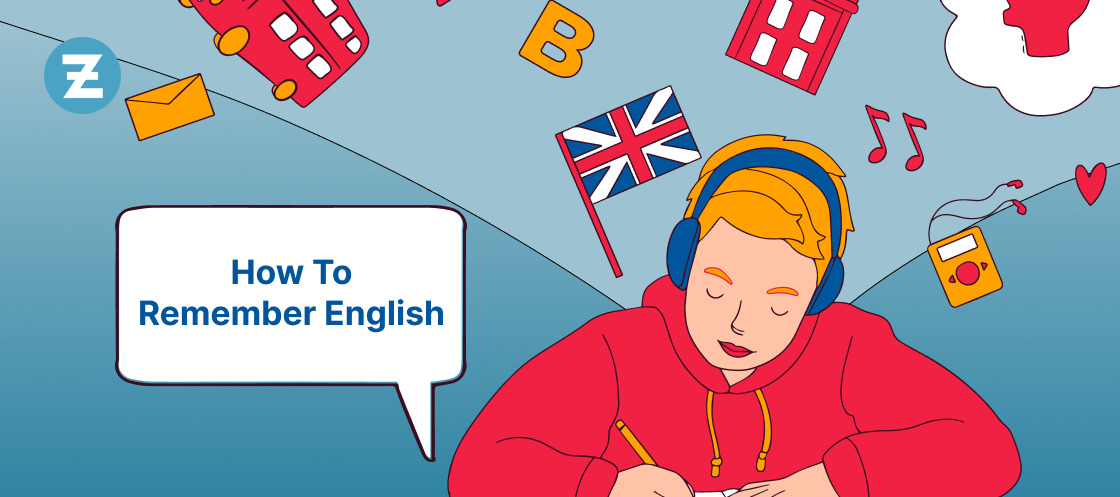Do you want to practice your English pronunciation? If so, you have come to the right place! Tongue twisters are a great way to improve your pronunciation and have some fun along the way. This blog post will look at some of the best tongue twisters for English pronunciation practice. So, get ready to practice your English pronunciation and have a laugh while you do it!
Wayne went to Wales to watch walruses.
“Wayne went to Wales to watch walruses.” This tongue twister is great, as it contains many difficult words and sounds. It requires a lot of practice to say it quickly, accurately, and with a good accent.
This tongue twister consists of seven words, each beginning with the letter “w”. This makes it especially tricky to say because it forces you to articulate each of the Ws precisely.
For instance, the first two Ws in the sentence (Wayne and went) are short and crisp, like a quick puff of air. The third W (to) is slightly longer and more drawn out. The fourth W (Wales) is a bit longer still, and the fifth and sixth Ws (watch and walruses) are even more drawn out.
A proper copper coffee pot.
A proper copper coffee pot is a tongue twister that has the potential to trip up even the most experienced tongue twister-er. It consists of a string of words with similar sounds but different meanings. This makes it especially tricky to say without stumbling over your words.
The phrase’s five syllables can be difficult to enunciate. Even if you try to emphasize each word slightly, getting them out in the right order can still be tricky. The “proper” and “copper”, in particular, can easily become jumbled together if you’re not careful.
The four consonant sounds in “proper copper coffee pot” can also be difficult to articulate. The ‘p’, ‘r’, and ‘c’ sounds can be tough to keep separate, especially if you’re trying to rush through them. The ‘t’ sound at the end can be especially hard to nail if you’re not used to the tongue twister.
Read Also: English Words With Same Spelling and different Meaning
The sixth sick sheik’s sixth sheep’s sick.
The tongue twister “The sixth sick sheik’s sixth sheep’s sick” is one of the most popular and well-known tongue twisters in English.
It starts with a number (sixth) and then introduces a character (a sheik) and the object of his attention (a sheep). As the phrase progresses, the number and character repeat, but the object of his attention changes, adding complexity to the phrase.
The challenge of pronouncing “The Sixth Sick Sheik’s Sixth Sheep’s Sick” lies in the repetition of the same number and character and the rapid switching of the object of the sheik’s attention. Each word in the phrase must be enunciated properly and clearly, or else the whole phrase will become garbled. For example, it’s easy to miss the “s” sound at the end of “sheep’s” if focused on the number and character.
The best way to master “The Sixth Sick Sheik’s Sixth Sheep’s Sick” is to start by repeating the phrase slowly, emphasizing each word and emphasizing the difference between the number and character and the object of the sheik’s attention. Then, gradually increase the speed at which you say the phrase until you can say it quickly and accurately.
I scream you scream, we all scream for ice cream.
Have you ever heard of the famous tongue twister “I scream, you scream, we all scream for ice cream”? It’s a popular phrase often used to test someone’s ability to pronounce words quickly and accurately. But what makes this tongue twister so challenging?
First, the repetition of “scream” makes it difficult for many people to pronounce it correctly. It’s easy to slip up and say “screech” or “screen” instead. Moreover, the phrase contains several words that can be difficult to pronounce quickly, such as “ice cream.” To get the pronunciation right, you need to be able to pronounce each word clearly while speaking in a steady rhythm.
Another issue is that it’s easy to get flustered when attempting to say the tongue twister quickly. The phrase is only three sentences long, but it can take some practice to say it without stumbling over your words or getting tongue-tied.
She sells seashells by the seashore.
“She sells seashells by the seashore.” It’s been around for decades and is still one of the most famous tongue twisters in the world. But why is it so hard to say?
The main reason why “She sells seashells by the seashore” is so hard to say is because of the repetition of the same sound. The phrase has five s’s, and they all have to be pronounced in succession. This makes switching between the different sounds difficult and can lead to mispronunciations. Additionally, the phrase has an incredibly fast pace that can cause the speaker to stumble over the words.
Another issue is the alliteration in the phrase. Alliteration is when the same sound is repeated throughout a phrase. In this case, the s sound is used for all the words. This makes it even harder to distinguish between them and can make the phrase difficult to say quickly.
Read Also: Everyday Phrases You Might Be Saying Incorrectly
How can a clam cram in a clean cream can?
The first thing that makes this tongue twister hard to say is alliteration. Alliteration is the repetition of the same consonant sound at the beginning of several words in a phrase. In this tongue twister, the repeated sound is “c”. The initial “c” sound has to be pronounced several times quickly, making it challenging to get the words out in the right order.
The second thing that makes this twister hard is the short, one-syllable words. These words are much easier to mix up when reciting the phrase quickly. Simple words like “a”, “can”, and “clam” can easily be mixed up and lead to confusion if spoken too quickly.
The third thing that makes this tongue twister hard is its repeated structure. The phrase is made up of the same three words, repeated again and again in a continuous loop. This makes it difficult to track which word comes next and can lead to mistakes when reciting it.
Lastly, the tongue twister is made more difficult by its length. It’s a long phrase with many words that need to be said in a short time. This makes it hard to keep track of all the words and can lead to mistakes when speaking.
Fuzzy Wuzzy was a bear. Fuzzy Wuzzy had no hair. Fuzzy Wuzzy wasn’t very fuzzy, was he?
This tongue twister has been a source of entertainment and frustration for many generations, and there are a few reasons why it’s so hard to say.
The main issue with this tongue twister is the word “fuzzy” repetition. It’s not only the repetition of the word that makes it difficult but also the fact that it is used three times in the same sentence. The repetition can make it difficult to keep track of where you’re at in the sentence and force you to pause and think, which can break up the flow of the entire phrase.
Tongue twister relies on a play on words to make sense. The phrase “Fuzzy Wuzzy had no hair” exemplifies this because it implies that the bear is not actually “fuzzy”. After all, he has no hair. The play on words makes it difficult to remember the entire phrase and makes it harder to say the words in the proper order.
Finally, the last part of the phrase, “Fuzzy Wuzzy wasn’t very fuzzy, was he?” is particularly tricky. This is because it’s a rhetorical question requiring the person saying it to think about their answer before they can say it. This cannot be easy, as it requires the person to think on their feet and figure out what they’re trying to say.
Six sick hicks nick six slick bricks with picks and sticks.
Tongue twisters can be a great way to have fun with language, but some can be surprisingly difficult. The tongue twister “Six sick hicks nick six slick bricks with picks and sticks” is no exception.
The difficulty of this tongue twister lies in its length and complexity. The phrase is quite long and contains multiple words that are similar in sound. This makes it hard to keep track of the words and their order. The repetition of similar sounds also makes it difficult to remember the beginning of the phrase and to keep the words and their order straight.
Another challenge of this tongue twister is its use of alliteration. Alliteration is a literary device in which words begin with the same sound. In this case, the phrase includes five words that start with “s”, two with “p”, and two with “t”. This can make it hard to keep track of the words and their order.
Finally, the tongue twister’s use of homophones adds to its complexity. Homophones are words that sound the same but have different meanings. In this case, the homophone pair “sick” and “slick” can make it tricky to keep the words and their order straight.
Read Also: 15 Weird English Words To Add To Your Vocabulary
Near an ear, a nearer ear, a nearly eerie ear.
One of the most difficult and perplexing tongue twisters is the phrase, “Near an ear, a nearer ear, a nearly eerie ear.”
At first glance, this phrase may not appear particularly difficult, but it is a very complicated sentence, and it takes a lot of skill to master the pronunciation. The sequence of words can be confusing and difficult to articulate quickly and accurately.
The challenge in this tongue twister lies in the pronunciation of the words. The words “ear”, “nearly”, and “eerie” contain a lot of consonants and vowel sounds, making them difficult to pronounce quickly. The words “near” and “nearer” have multiple syllables that can be difficult to separate and pronounce accurately.
Another challenge is the repetition of the same words. The three words “ear” and “near” appear three times in the phrase, making it difficult to remember them in the correct order and pronunciation. The phrase also contains a lot of alliteration, which can be difficult to say quickly and accurately.
How much pot, could a pot roast roast, if a pot roast could roast pot?
The challenge of this particular tongue twister lies in the fact that it contains three words that rhyme: “pot”, “roast”, and “pot”. This makes it hard for your tongue to distinguish between the different words, and it can take some practice to become proficient.
The difficulty of this tongue twister is further increased by the fact that it consists of two clauses. The first clause asks, “How much pot, could a pot roast roast?” and the second clause answers, “if a pot roast could roast pot?”. This makes it harder for your tongue to keep up with the sentence structure, as it can easily confuse which words come first.
The last challenge to this tongue twister is that it contains two homophones: “pot” and “roast”. Homophones sound the same but have different meanings, making distinguishing between the different words in the sentence difficult.
The seething sea ceaseth and thus the seething sea sufficeth us.
First of all, the complexity of the phrase itself. Even though it’s only seven words, it contains a lot of syllables for the tongue to keep track of. We need to be able to quickly and accurately pronounce all of the vowels and consonants in the phrase to get it right. This can be especially tricky when we’re saying it quickly, as we need to pay attention to the exact order of the syllables to get the pronunciation right.
Next, the “seething sea” part of the phrase is a homonym, which means that it can be pronounced either as “sea-thing” or “seeth-ing”, depending on the context. This can make it hard to determine which pronunciation is correct, which can add to the difficulty of the tongue twister.
And finally, the use of alliteration in the phrase makes it even harder to pronounce. Alliteration is when two or more words start with the same letter or sound, making distinguishing one word from the next hard. In this case, the repeated “s” sound can be tricky to pronounce, as it can easily be confused with other words in the phrase.
A big black bug bit a big black dog on his big black nose.
This tongue twister is unique because of the repetitive nature of the words. Not only are the words “big”, “black”, “bug”, “bit”, and “dog” repeated multiple times throughout the phrase, but they’re all used in the same order. This repetition makes this particular tongue twister difficult to say quickly and accurately.
The challenge with this twister is that the words are all so similar. The beginning of each word is the same, and they all end with “g”. So, when you’re trying to say the phrase quickly, it’s easy to get confused and say the wrong word. This is why it’s important to enunciate each word clearly when attempting to say this tongue twister.
This tongue twister is also difficult because of its length. A phrase like “A big black bug bit a big black dog on his big black nose” is much longer than the classic tongue twisters we all know and love. This longer phrase makes it more difficult to remember the words’ order and say the phrase quickly and accurately.
Lastly
Tongue twisters are fun to say and one of the best ways to improve your English pronunciation. With some being very hard, these can be quite a challenge. If you want to take your English language skills to the next level, try Zoundslike, a free language improvement app. Playing its game-based app lets you easily learn and improve your English skills. So, have fun and practice your English with these hard-to-say tongue twisters while also using Zoundslike to develop your language proficiency further.
FAQs
Q.1 What are tongue twisters?
Tongue twisters are phrases or sentences that are difficult to articulate quickly and accurately due to their combination of similar sounds, consonant clusters, or challenging pronunciations. They are a fun and effective way to practice pronunciation skills in various languages.
Q.2 Why should I practice tongue twisters for English pronunciation?
Tongue twisters help improve your English pronunciation by challenging your articulatory muscles and training your tongue, lips, and vocal cords to produce specific sounds accurately. They can enhance your overall fluency and clarity when speaking English.
Q.3 How can tongue twisters benefit my English communication skills?
Practicing tongue twisters regularly can improve your diction, enunciation, and pronunciation accuracy. It can also enhance your ability to speak English more clearly, especially when it comes to challenging sounds or sound combinations that may not exist in your native language.
Q.4 Are there tongue twisters suitable for different levels of English proficiency?
Yes, there are tongue twisters available for different proficiency levels. Some are simpler and focus on basic sounds, while others are more complex and challenging. Choosing tongue twisters that suit your current proficiency level is important to ensure effective practice.
Q.5 How should I practice tongue twisters for English pronunciation?
Here are a few tips:
- Start slowly and gradually increase your speed as you become more comfortable.
- Focus on individual sounds and try to pronounce them accurately.
- Repeat the tongue twister multiple times, paying attention to your pronunciation and clarity.
- Use a mirror to observe your mouth movements and correct any errors.
- Record yourself practicing and listen back to identify areas for improvement.
Q.6 Can tongue twisters help with specific pronunciation difficulties?
Yes, tongue twisters can be particularly helpful for overcoming specific pronunciation challenges. For example, if you struggle with ‘th’ sounds, practicing tongue twisters like ‘Three free throws’ can target that specific sound and help you improve.
Q.7 How frequently should I practice tongue twisters?
Consistency is key when it comes to practicing tongue twisters. Aim to practice regularly, preferably daily, for a few minutes. Short but frequent practice sessions yield better results than sporadic or infrequent practice.
Q.8 Are tongue twisters only for pronunciation practice, or do they have other benefits?
While tongue twisters are primarily used for pronunciation practice, they can also help improve oral fluency, rhythm, and intonation. Additionally, they can be a fun and engaging way to enhance your language skills and build confidence in speaking English.








